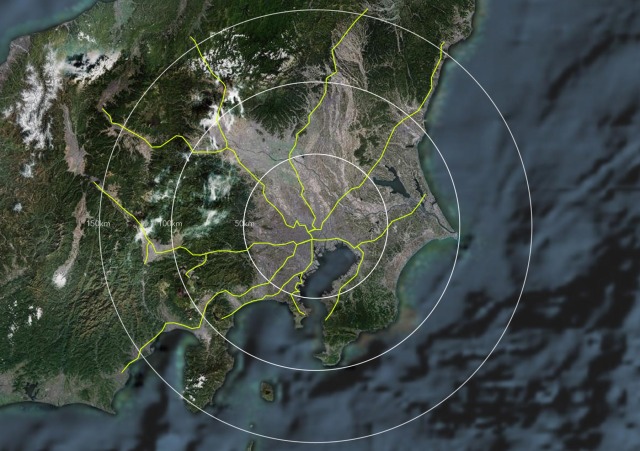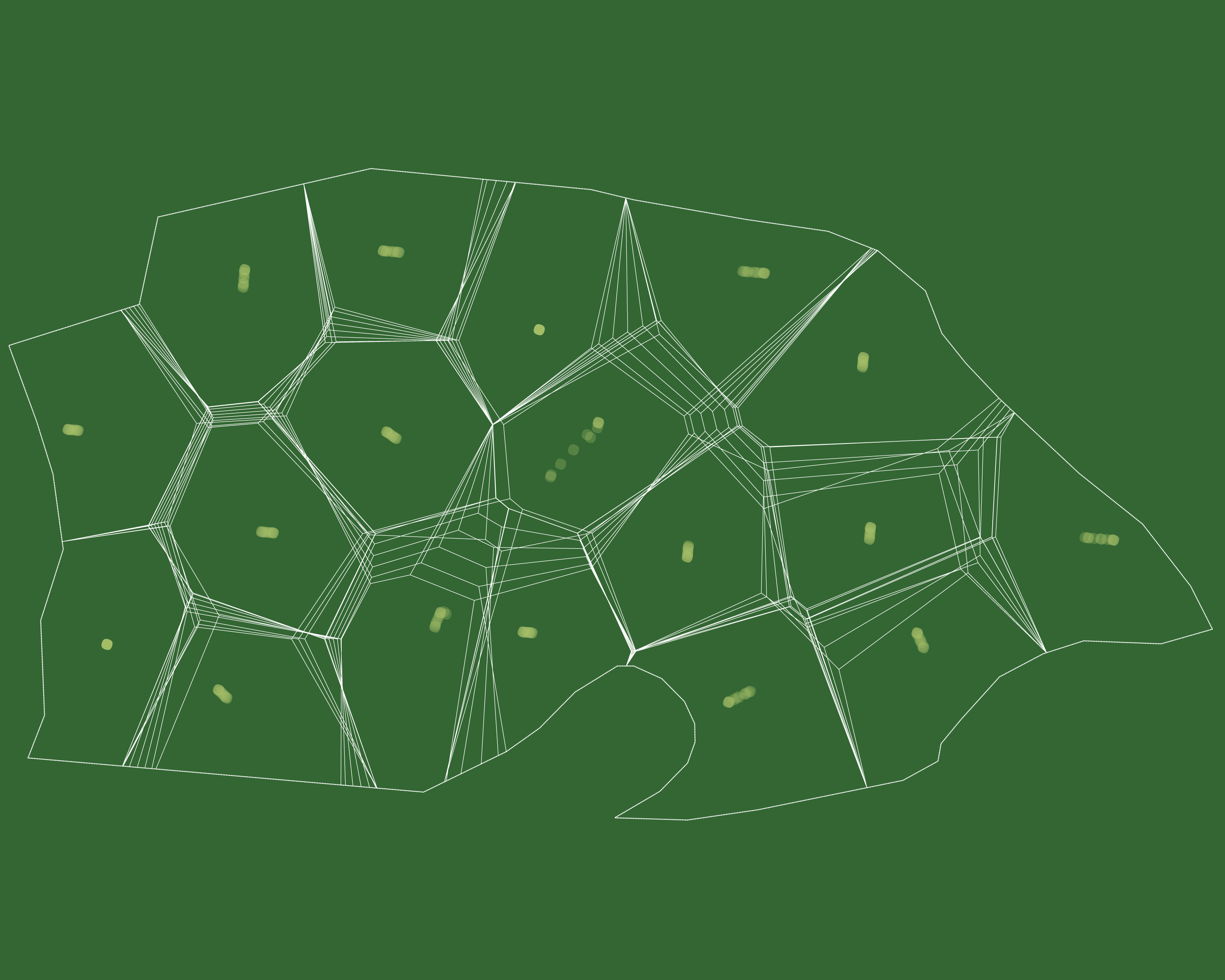2007
Author
- Florian Busch
Related
Language
Improbable Realities

Tokyo is stretching. Like around most other metropolises, a relentless desire for peaceful cosiness lets suburbia grow into a wasteland of hyper-dense family-home neatness. The alternative is the weekender’s escape to self-contained villages of homogeneous tourism.
In stark contrast, and strangely overlooked, is the real remote village: over-aged, shrinking, drained of a generation of young people who have grown up with the limits of opportunity in their daily lives and consequently left. For Tokyo. To save and then build a house in the suburbs. Or spend the weekends in a summer residence.
In search for types of living that go beyond the conventional development of simply extending the urban enclosure or the weekender’s resort-shopping, the project focuses on unlikely sites, mostly so remote that the official building code does not apply, but within a two-hour radius of central Tokyo.
One of the sites is close to Mt Fuji, overlooking the Kofu plateau. While nothing except mountains is in immediate sight, a small farmers’ village is just two kilometres away.

The roughly ten-hectare site is divided following strategies of the curious opportunist: First, occupy the site’s characteristic hotspots. With upper and lower limit for occupancy set, the distances between the occupied hotspots emerge naturally. Plot lines are not drawn a priori but emerge over time demarcating the median between the neighbouring occupied points.
Like the city in the past, the countryside is becoming the new catalyst for change. But while the movement to the city left everything behind and sought the new in the city, the movement to the countryside keeps its convenient contact with the city ready on call, made possible by the speed of technology.
FB, 2007